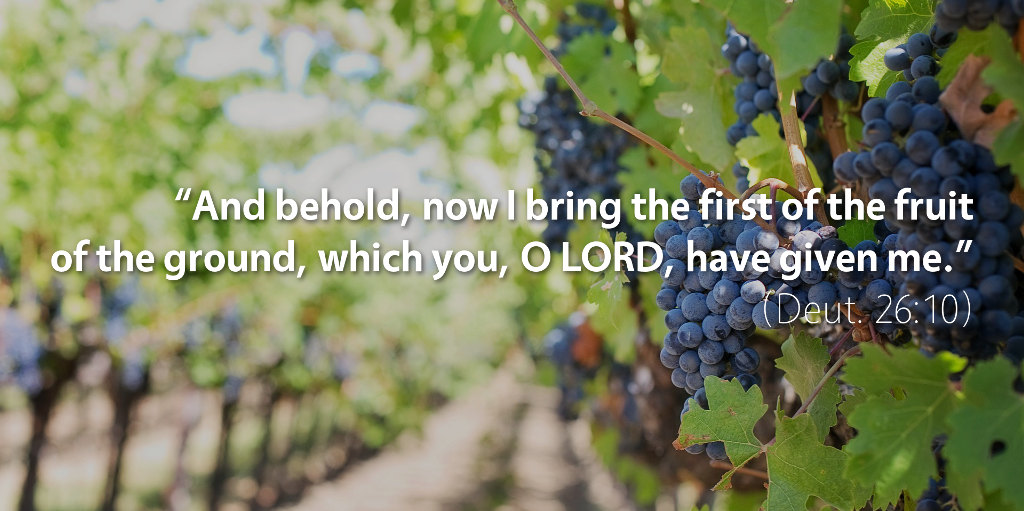Bible Readings for June 21st
Deuteronomy 26 | Psalms 117–118 | Isaiah 53 | Matthew 1
For the people of God, giving is never meant to be a burdensome task. Deuteronomy 26 teaches us why we ought to give, using two events that were to happen when Israel took possession of the Promised Land: the offering of the firstfruits (Deut. 26:1–11) and the third-year tithe (Deut. 26:12–15).1
First, upon moving into the land—a land that came prepopulated with vineyards and olive trees that Israel did not plant (Deut. 6:11)—Yahweh commanded Israel not to eat of the first year’s crop that they would harvest. Instead, they were to offer as a tithe the firstfruits of the land that Yahweh had given them out of his free grace and mercy.
As Israel brought their offering to the place Yahweh would choose, they were to repeat the story of how Yahweh had brought them into this good land, a story that concluded with this line: “And behold, now I bring the first of the fruit of the ground, which you, O LORD, have given me” (Deut. 26:10).
Second, at the end of every third year, Yahweh had commanded Israel to give generously to the poor in their midst—that is, to the sojourner, the fatherless, and the widow—as well as to the Levites, who did not receive an inheritance of their own (Deut. 26:12). Moses had explained this requirement earlier in Deuteronomy 14:28–29, but he adds here another liturgy to repeat during that tithe, where the worshiper would swear that he had obeyed all the voice of Yahweh in regard to his tithe (Deut. 26:13–14). Then, the worshiper would pray, asking Yahweh to bless his people Israel (Deut. 26:15).
These two ceremonies illustrate two principles surrounding our giving. The first reminds us that everything we receive comes to us as a gift from the hand of our gracious God, a principle underscored in James 1:17: “Every good gift and every perfect gift is from above, coming down from the Father of lights with whom there is no variation or shadow due to change.” The second points us back to our calling, that we who have been blessed ought to be a blessing to others. As Jesus reminded us, “You received without paying; give without pay” (Matt. 10:8).
How do you approach giving? With joy, gratitude, and a sense of calling as you freely pass on what you have freely received, or begrudgingly?
The way to change your heart is not to heap upon yourself more law, duty, and shame but to preach to yourself the story as you give, especially since we have an even greater story than did Israel: “For you know the grace of our Lord Jesus Christ, that though he was rich, yet for your sake he became poor, so that you by his poverty might become rich” (2 Cor. 8:9).
1 P. C. Craigie, The Book of Deuteronomy, NICOT (Grand Rapids, MI: William B. Eerdmans Publishing Company, 1976), 318–24.
Podcast: Play in new window | Download (4.9MB) | Embed
Subscribe: Apple Podcasts | RSS | More

Scripture quotations are from The Holy Bible, English Standard Version copyright © 2001 by Crossway Bibles, a division of Good News Publishers. Used by permission. All rights reserved.


